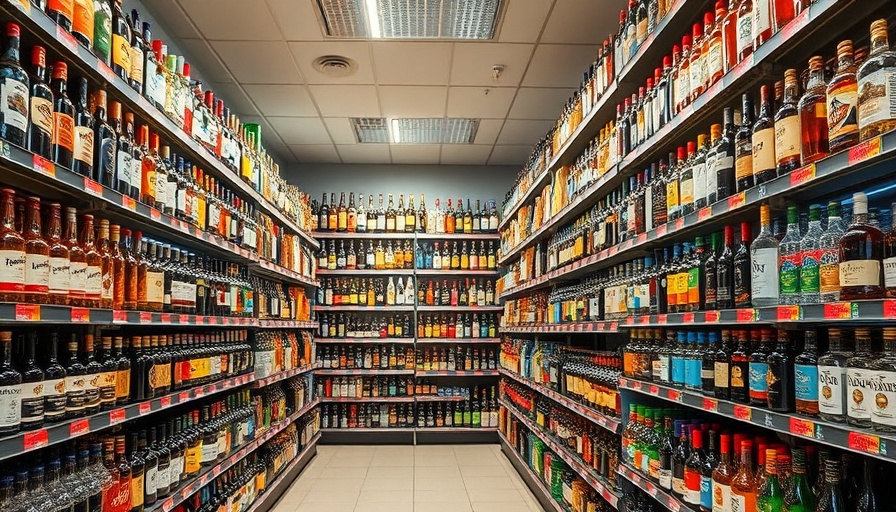
How Proposed Tariffs Could Alter the Alcohol Landscape in the U.S.
The wine and spirits industry is on high alert as proposed tariffs threaten to disrupt an already fragile market. Approximately 30% of all wine and spirits consumed in the United States is imported, with imported wines alone accounting for a staggering 35% of all related revenue. This significant reliance raises grave concerns among industry experts, who warn that mere discussions surrounding a 200% tariff on imports could have dramatic consequences for consumers and producers alike.
Understanding the Economic Impact of Tariffs
The Wine and Spirits Wholesalers of America is advocating for reconsideration of these tariffs, citing the potential for prices to soar. CEO Francis Creighton stated, “Businesses across all three tiers, from suppliers to wholesalers to retailers, are in no position to absorb such drastic cost increases.” This escalating situation arises not only in response to European tariffs on American whiskey but also reflects broader economic tensions that could adversely affect consumers who will ultimately shoulder these costs in the form of higher prices.
A Ripple Effect: From Importers to Consumers
Statistical data reveals that a considerable portion of popular wines and spirits cannot be produced domestically. For instance, the proposed 200% tariff would inflate a $15 bottle of Prosecco to an eye-watering $45, directly impacting consumers. Industry leaders argue that this spike in prices may deter many from dining out, ultimately hurting service workers such as bartenders and servers who depend heavily on tips and customer traffic.
Political Climate and Tariffs: What's at Stake?
President Trump has framed these tariffs as a necessary measure to protect American interests, asserting that the European Union has long exploited the U.S. in trade relations. However, speculation remains that these tariffs may not achieve their intended outcome. Instead, they may exacerbate the economic woes for consumers already facing inflated prices for numerous goods and services.
Resistance from the European Union
The European Union is unlikely to back down without a fight. French Trade Minister Laurent Saint-Martin expressed the region's commitment to defending its industries against what they perceive as aggressive trade measures. Such an unwavering stance indicates a looming trade war that could strain long-standing partnerships between the U.S. and Europe.
What Consumers Should Know
For consumers who enjoy European wines and spirits, it’s crucial to stay informed about these proposed changes as they could redefine alcohol pricing and availability in the U.S. With the looming threat of steep tariffs, understanding the dynamics and potential market shifts will enable consumers to make more informed decisions regarding their purchases.
Advice from Industry Experts
Chris Swonger from the Distilled Spirits Council emphasized that negotiations between the U.S. and EU are essential to find a balanced solution that meets both parties' needs. This sentiment underlines the broader consensus in the industry—that better discussions could pave the way toward greater harmony in international trade and help stabilize the market for all stakeholders.
The repercussions of tariffs extend far beyond raised prices on alcohol; they reflect a larger narrative about trade, economics, and the delicate balance between domestic interests and global relations. As these discussions unfold, consumers are encouraged to keep abreast of developments and consider how these economic policies will influence their choices in the marketplace.
Trustworthy and open discussions in trade policy not only support a robust market but also help sustain the quality and availability of cherished products from abroad. In the face of uncertainty, remaining vigilant about the implications of tariffs will empower consumers while supporting the industry's efforts to navigate these turbulent waters.
 Add Row
Add Row  Add
Add 




Write A Comment